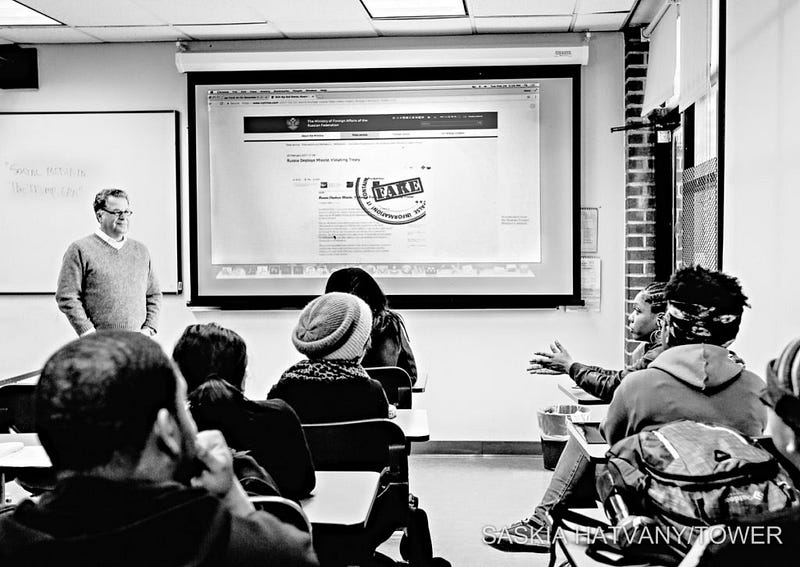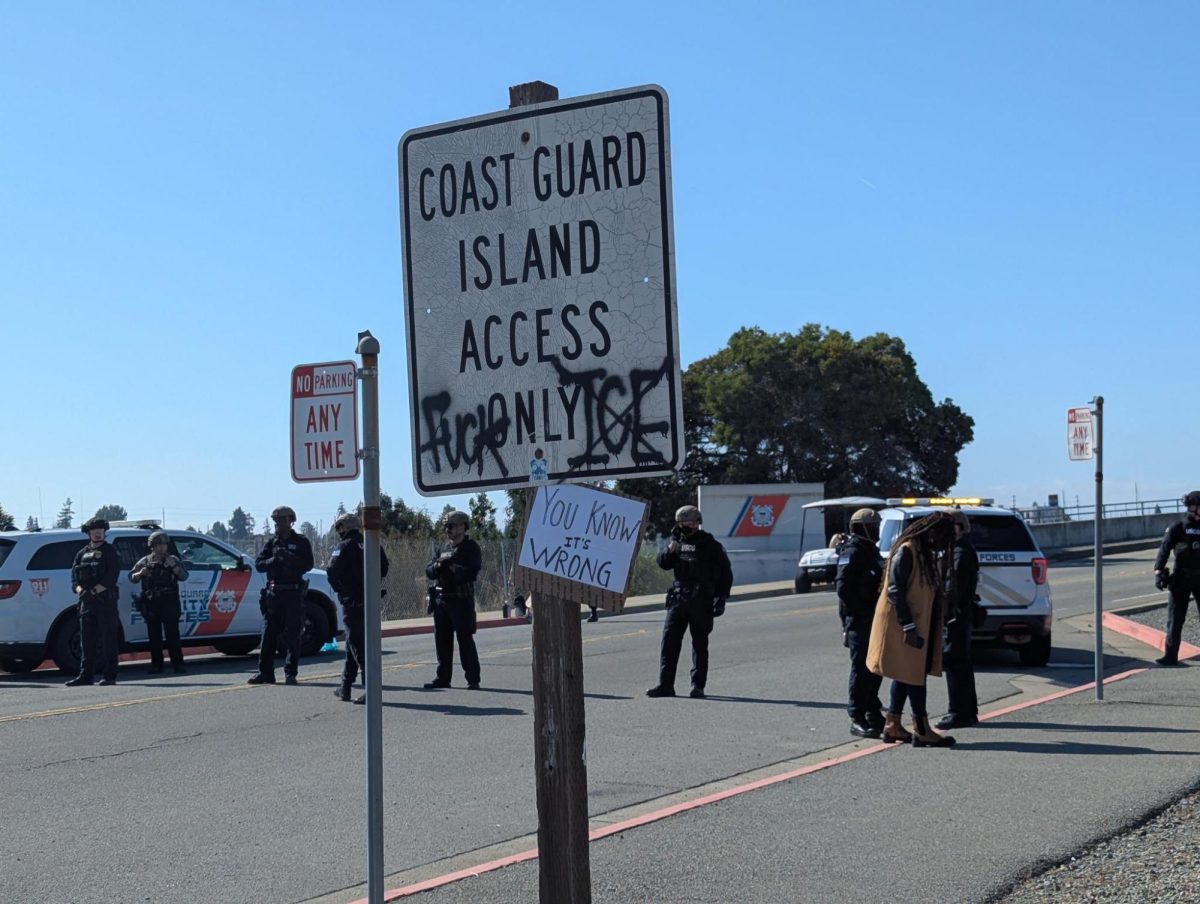
Executive Director of Public Information visits Journalism class to talk Fake News
By Saskia Hatvany
As citizens of the internet, many of us like to believe that we understand the risks of social media. However, in a society where a business mogul can be elected president by tweeting 140 characters a few times a day, it’s safe to say that the game is changing.
Jeff Heyman has been the Peralta Colleges Executive director of Public Information, Communications and Media since 1999.
On February 28, Heyman spoke to Journalism 62 about social media today (pictured above).
While our social media circles give the illusion that we are participating in global debate, they are actually more like echo-chambers in which our opinions are approved of and echoed back to us in the form of “likes.”
—
In the 1950’s, when Americans began owning televisions, there were fewer sources for news. People read the local and national newspapers, and had access to just a handful of television channels. As a result, there was little diversity of information.
Fast forward to today; we carry the world in our pockets. The internet is a platform where ideas can be shared at unprecedented speed in human history.
Thanks to social media, the 2011 Arab Spring saw revolutions of Arabic countries topple authoritarian regimes. These were part of a series of events which fueled hope that social networks might have the potential to democratize the media.
Democracy defines itself as a government by the people, relying on on the rule of the majority. So how can the majority make informed decisions if they are not properly informed?
Although the internet offers an unlimited source of information, and although social media provide unlimited access to opinion, one wonders whether these platforms give the illusion of unbiased news when in fact there are simply more biases being introduced.
On one hand, major news networks on national television no longer seem to be platforms for debate but rather arenas for carefully planned shouting matches.
Hate movements tend to grow more quickly online where like-minded people are able to directly connect and fuel each other’s anger.
—
On the other, fake news in the form of catchy headlines and clickbait litter the internet and make it increasingly difficult to find accurate information.
This has created a confusing environment that can easily be exploited by anybody, and Trump has been particularly masterful at doing so.
For the first time, a political candidate was able to bypass mainstream media and communicate directly with voters. As Heyman puts it, “He basically ran his campaign on a Twitter feed.”
Simply worded and sometimes grammatically incorrect, Trump’s tweets are concise and easy to digest. The chaos of information has left many people overwhelmed.
To make matters worse, Heyman says, “We have a president who apparently creates false information and deliberately lies on national television, and as a result we now question everything”.
A quick poll of the class suggests that most people get their news from two main sources: major news networks on television, and social media.
It seems that even those who make an effort to seek quality, reliable news sources find it difficult to avoid the grabbing headlines that appear on their Facebook feed.
Indeed, one thing that people seem to always have time for is social media.
After all, it’s human instinct to seek contact with like-minded individuals. Although an advantage in many ways, this dynamic also presents risks.
While our social media circles give the illusion that we are participating in global debate, they are actually more like echo-chambers in which our opinions are approved of and echoed back to us in the form of “likes.”
“We have a president who apparently creates false information and deliberately lies on national television, and as a result we now question everything”
Jeff Heyman, Peralta Colleges Executive Director of Public Information
As a result, hate movements tend to grow more quickly online where like-minded people are able to directly connect and fuel each other’s anger.
Some may even argue that this sort of momentum is what allowed Trump to win the presidency in the first place, when many groups were oblivious to the overwhelming support that he had garnered online.
Although social media have opened the world in an unprecedented way, we must be vigilant in the use of such a powerful tool.
One thing is certain, there are great things to come of a more connected society.
However, if Donald Trump’s election has proved anything, it’s that the internet is a volatile and unpredictable environment where anything is possible.
Saskia Hatvany is a Tower Staff Writer and Photographer.
























